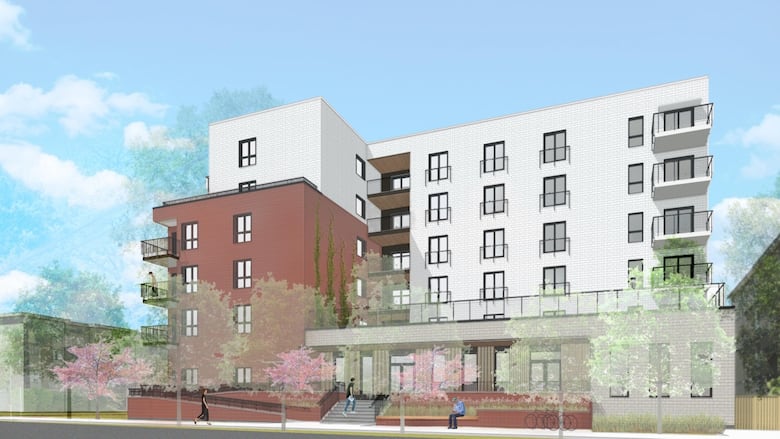Affordable rental project in Port Coquitlam, B.C., on hold as city council raises concerns
B.C. housing minister is ‘disappointed but not surprised’ with delay

Plans for a new affordable apartment building reserved for people with mental illness have been paused after Port Coquitlam's mayor and city council raised concerns about the number of parking spaces at the development and the length of leasing terms.
The proposed B.C. Housing development at 2365 and 2371 Kelly Avenue includes 74 rental units with 18 parking spaces.
Port Coquitlam Mayor Brad West said the lack of parking spaces in the proposal conflicts with local bylaws, which state one parking space must be allocated per rental unit.
B.C. Housing Minister Ravi Kahlon said he's "disappointed but not surprised" with the development being held up while West said that if B.C. Housing could offer longer leasing terms, city council would likely support the project.

West said the province has asked the city to waive the parking in-lieu fee, which allows developers to pay the city instead of providing the required number of off-street parking spaces. In this case it amounts to about $2.5 million.
"You're asking to be forgiven a $2.5 million payment to the city," West said. "The least you can do is provide housing security for those people for a much longer term, you know, something like 20 years or 30 years."

The proposed agreement guarantees people housing for five years, an improvement from the original three years proposed by B.C. Housing, West said.
Still, he says that five years is not long enough.
At a Port Coquitlam city council meeting on June 24, the housing proposal was sent back to B.C. Housing with a request for more information on parking and what the long-term plans are if the building sees a new operator.
Housing minister disappointed
B.C. Housing has partnered with New View Society, a charity in Port Coquitlam, to be the operator at the site.
Chantelle Burga, executive director of New View Society, said the operating agreement between the society and B.C. Housing is five years to ensure that proper maintenance is being done and that the building is being used to full capacity.
She said parking is less needed at the site because people who are low income tend to take public transit, cycle, or find other means of transportation.

"The residents that would be living here would be individuals who reside within the Tri-Cities who are living with a mental illness and often are on limited income," she said.
"Due to that limited income, they often don't drive and they will utilize local transit that might be available to them."
Kahlon said he hopes city council will reconsider and support the project.
"If the community doesn't want it, I would rather them just say no," he said.
"There are a lot of communities that do want affordable housing and we are happy to move the resources there."
With files from Michelle Morton and Martin Diotte